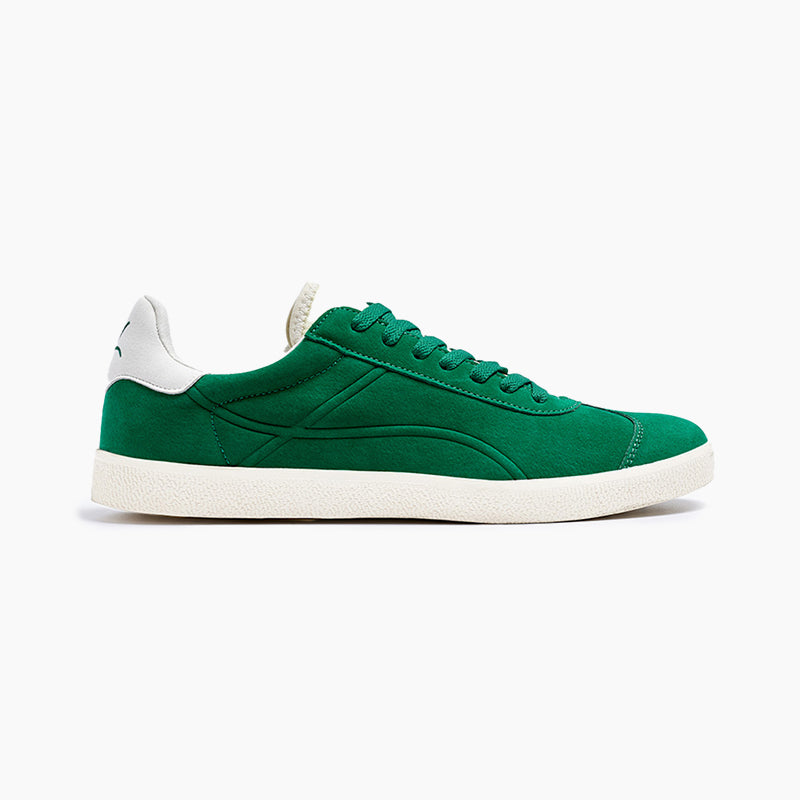What is Vegan Leather? Is It a Good Choice for Shoes?

Vegan footwear is gaining ground as more people seek ethical, sustainable choices that don’t compromise on style or comfort. But what is vegan leather, and why is it becoming such a topic in the footwear industry? Unlike traditional shoes made from leather, wool, or suede, vegan footwear is crafted using plant-based materials like corn, bamboo, or apple—and synthetics such as microfiber, rubber, and recycled plastics.
These materials bring a cruelty-free alternative that aligns with growing environmental and health-conscious values. In this blog, we’ll explore what vegan leather really means, how it compares to real leather, and whether it’s a smart, long-term choice for your next pair of shoes.
What is Vegan Leather: Meaning and Origins
Vegan leather imitates traditional animal-based leather without involving animals. It is also known as faux leather or synthetic leather. Traditionally, animal leather comes from the hides of cows, pigs, sheep, snakes, and horses. In contrast, vegan leather uses synthetic materials like polyvinyl chloride (PVC) and polyurethane (PU) or plant-based fibres such as pineapple leaves (Piñatex), cactus, cork, apple peels, and mushroom (Mycelium).
Vegan leather is considered a sustainable staple in modern fashion, yet it has also become a subject of debate due to concerns about greenwashing.
Vegan Leather vs Real Leather
When comparing vegan leather vs real leather, several distinctions emerge. Real leather is made through a resource-intensive tanning process. It involves chromium or vegetable tanning. Chromium tanning provides durability and water resistance. But it also produces harmful chromium waste in the process, polluting waterways.
Vegetable tanning uses natural materials like tree bark. It avoids harmful chemicals. It also costs more. Real leather is durable, breathable and biodegradable. When properly cared for, it can last decades.
Vegan leather, however, is cruelty-free and more affordable, bringing an extensive range of textures and colours. Synthetic vegan leather, particularly PVC, can release pollutants and toxic chemicals. While PU leather is less environmentally damaging, it still derives from fossil fuels. Vegan leather generally has a shorter lifespan of two to five years. It means frequent replacements.
Advantages of Choosing Vegan Leather Shoes
Choosing vegan leather shoes provides many ethical advantages. It reduces animal suffering and aligns your fashion choices with cruelty-free principles. Vegan leather shoes are highly versatile, providing numerous styles and affordability. Synthetic materials can resist water damage and scratches better than real leather too.
Drawbacks of Vegan Leather Shoes
Despite these advantages, vegan leather shoes present certain challenges. As mentioned, PVC-based vegan leather poses environmental risks due to its plastic composition, toxic emissions and non-biodegradable nature. The lack of breathability in synthetic vegan leather can lead to discomfort, especially in warmer climates.
Durability also remains an issue as vegan leather shoes generally last less time than genuine leather alternatives.
Environmental Considerations of Vegan Leather
The environmental impact of vegan leather varies significantly based on its composition. Synthetic materials like PVC and PU heavily rely on petrochemicals and contribute to environmental pollution.
However, sustainable vegan leather products made from natural fibres such as cork, pineapple leaves and apple peels present lower ecological footprints. Frequent replacements mean more footprint on waste management.
Vegan Leather in Fashion
The fashion industry increasingly adopts vegan leather. Certain prominent brands are experimenting with alternative materials like fish skin, which has historical and cultural roots. Vegan leather brands frequently integrate plant-based materials and sustainable manufacturing practices to align with consumer demand for ethically produced goods.
Is Vegan Leather a Good Choice for Shoes?
Determining if vegan leather is suitable for shoes depends on your priorities. Ethically, vegan leather is an excellent choice as it avoids animal exploitation. It provides a more sustainable option when produced responsibly. However, considering its shorter lifespan and environmental impact from synthetic materials, careful selection of sustainable brands and materials invokes a discussion.
On the other hand, real leather can be sustainable if purchased responsibly. Leather that is vegetable-tanned, sourced as a meat byproduct, or from small ethical farms. Proper maintenance can also reduce its harmful impact.
Also check - What is sole of the Shoe?
Conclusion
As consumer awareness grows, repairability and end-of-life considerations are becoming just as important as how a product is made. Vegan leather shoes, though often less durable, can still support sustainability when paired with responsible habits like mindful purchasing, proper care, and choosing brands that offer recycling programs.
Some companies are even experimenting with biodegradable alternatives that break down naturally over time. Knowing how your shoes are made, used, and disposed of gives you a more complete view of their impact—and helps you make choices that are better for both your lifestyle and the planet.
Learn more about - Suede vs Leather
FAQs
Is vegan leather durable?
Vegan leather can be durable, depending on its quality and manufacturing. High-grade vegan leather made from polyurethane or plant-based materials often resists wear and lasts several years with proper care.
What is vegan leather?
Vegan leather is a synthetic or plant-based alternative to animal leather. It replicates the texture and appearance of real leather without using animal hides.
How is vegan leather made?
Vegan leather is usually made by coating a fabric base, like polyester or cotton, with materials such as polyurethane, PVC, or plant-based sources like cactus, pineapple leaves, or apple peels.
Is vegan leather plastic?
Not every vegan leather is plastic. Some types are plastic-based, those made from polyurethane or PVC. However, newer alternatives use plant-based inputs, reducing reliance on fossil fuel-derived plastics.
What is vegan leather made of?
Vegan leather is made from synthetic materials like polyurethane or from natural sources such as cork, cactus, pineapple, or recycled plant waste, applied to a fabric backing for structure and strength.


































